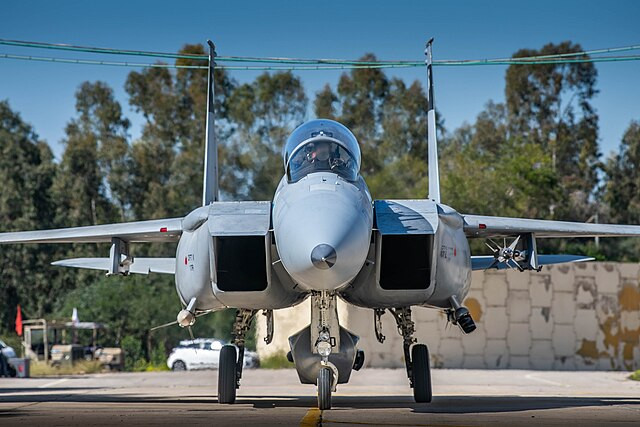Israel targeted Iran's Khondab nuclear complex near Arak on Thursday in an intensification of hostilities that also saw Iran strike an Israeli hospital, wounding dozens. The attacks mark the seventh consecutive day of cross-border strikes between the two regional adversaries, pushing the conflict into increasingly dangerous territory.
An Israeli military spokesperson said its fighter jets bombed multiple sites across Iran, including the Khondab heavy water reactor. "The structure of the reactor's core seal, which is a key component in plutonium production," was specifically targeted, the Israeli army stated. The reactor, partially built, was designed to produce plutonium usable in nuclear weapons.
Iranian state media acknowledged that two projectiles struck near the Khondab facility but reported that the site had been evacuated in advance. "No radiation danger whatsoever," a state television reporter said, broadcasting live from the nearby town.
The International Atomic Energy Agency confirmed the reactor had been hit but noted it did not contain radioactive material. There was no evidence the adjacent heavy water production plant was affected.
In retaliation, Iran launched missiles that struck several cities in Israel, including Tel Aviv, Holon, and Beersheba. One missile hit the Soroka Medical Center in Beersheba, a hospital that serves over one million residents in southern Israel. The Israeli Health Ministry reported at least 50 injuries, including four in critical condition.
"This is a war crime committed by the Iranian regime," Israeli Health Minister Uriel Buso said on Israeli Army Radio. Prime Minister Benjamin Netanyahu warned Iran's leaders that they would pay "a heavy price."
Shlomi Kodesh, director general of Soroka, told reporters that a missile strike had destroyed several wards and injured 40 people, mostly staff and patients. The hospital suspended all non-life-threatening admissions and moved critical patients underground. "We're trying to minimize the number of people at Soroka. At the moment, we don't know if buildings may collapse or if wards might collapse," Kodesh said.
Iran's IRNA news agency reported the intended target of the Beersheba strike was the IDF's Command and Intelligence headquarters located near the hospital. It claimed Soroka suffered only minor damage from shockwaves. Israeli authorities rejected this, and tight military censorship obscured whether military assets were located nearby. Independent observers noted that Israeli military sites are sometimes positioned near civilian zones.
Al Jazeera contributor Ori Goldberg commented that Israeli messaging focused on the hospital to convey that "the Iranians target hospitals," while noting that "Israelis target hospitals as well."
Iran's missile campaign marks the first time in decades that a significant number of projectiles from the country have penetrated Israel's air defenses, resulting in civilian deaths and damage to key infrastructure. At least 24 people have been killed in Israel and hundreds wounded. Iran's missile and drone barrage totals nearly 400 weapons launched since the start of the conflict.
Inside Iran, the government has blocked news coverage and public communications. The internet has been largely shut down, and citizens have been warned against filming damage due to alleged espionage concerns. Authorities have stopped providing updated casualty figures, though a Washington-based Iranian human rights group reported at least 639 deaths, including 263 civilians, and more than 1,300 wounded.
Israel's military campaign, now targeting strategic and nuclear sites, follows Friday's air strikes that killed senior Iranian military leaders and top nuclear scientists. Iran's Supreme Leader Ali Khamenei responded by rejecting U.S. calls for surrender, warning that any American military involvement would cause "irreparable damage."






